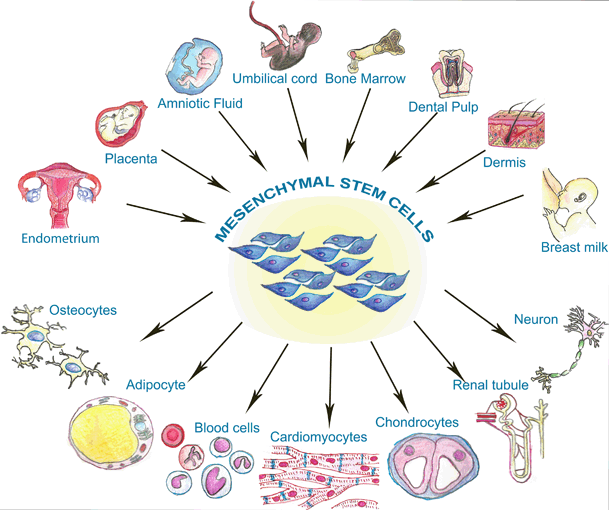
Potency measures of mitochondrial/immunosuppressive capacity and additional cellular function assays show differences suggesting biological advantages of umbilical MSCs. MSCs are plastic-adherent, fibroblast-like cells, which are typically able to self-renew and differentiate into. Our results show comparable phenotypic profiles, morphology, expansion in cell culture and adipogenic, osteogenic and chondrogenic differentiation. Adult Mesenchymal and Neural Crest Stem Cells. Here, we provide results of a comparative study of purified and expanded MSCs from adipose, bone-marrow, placenta, and umbilical cord involving determination of phenotype by flow cytometry analysis, cellular potency by quantitative assessment of mitochondrial function and immunosuppression, and cellular function by quantitative assessment of cell migration and proliferation.


The final, formatted version of the article will be published soon. Expanded and well-characterized MSCs have application in regenerative medicine and have been used in several clinical trials including treatment for osteoarthritis and other conditions. Adult tissue-specific stem cell interaction: novel technologies and research advances. Mesenchymal stromal/stem cells (MSCs) have the potential to repair and regenerate damaged tissues, making them attractive candidates for cell-based therapies. SeptemComparative Analysis of Adult Mesenchymal Stem Cells Derived from Adipose, Bone-Marrow, Placenta, and Umbilical Cord Tissue Mesenchymal stem cells (MSCs) have been demonstrated as an attractive cell source for tissue-engineering applications because of their ability to be easily.


 0 kommentar(er)
0 kommentar(er)
